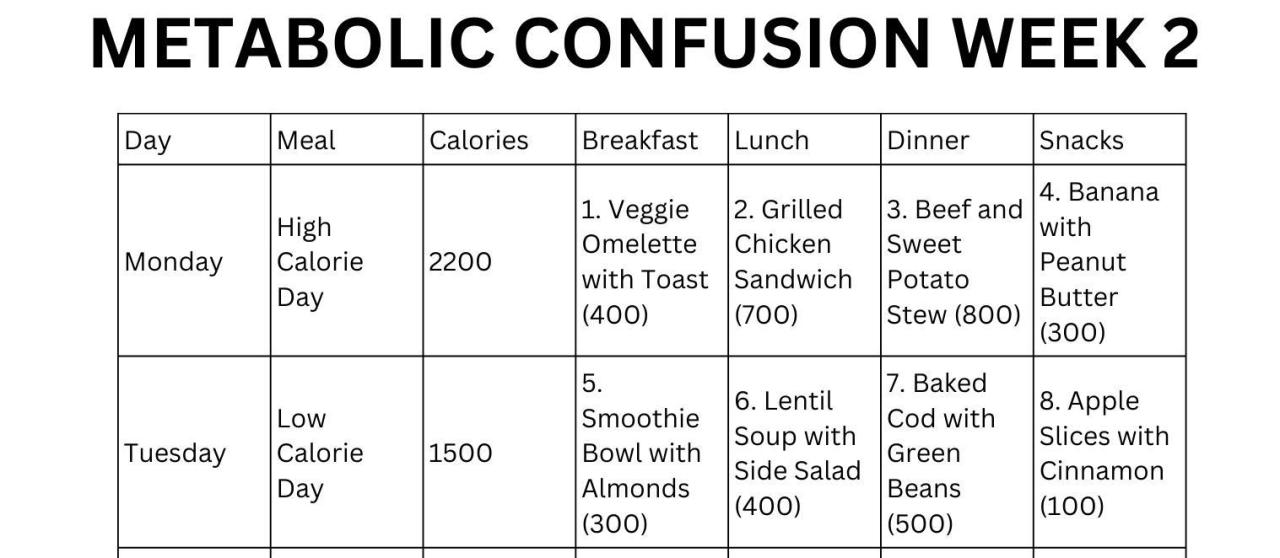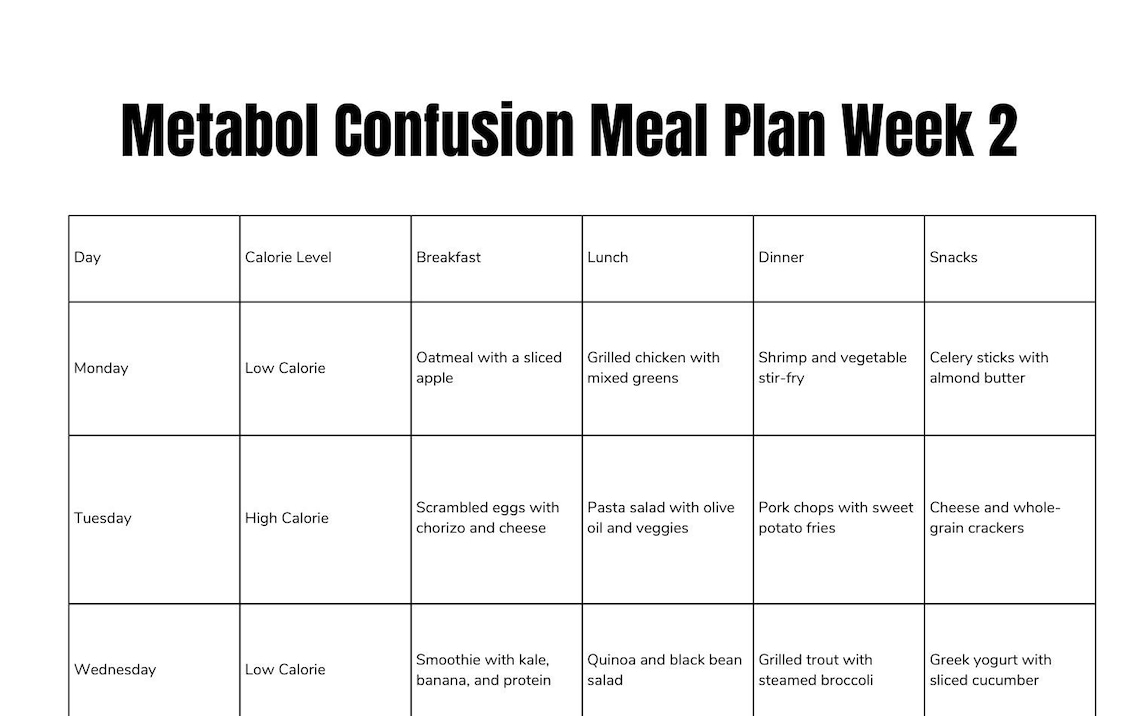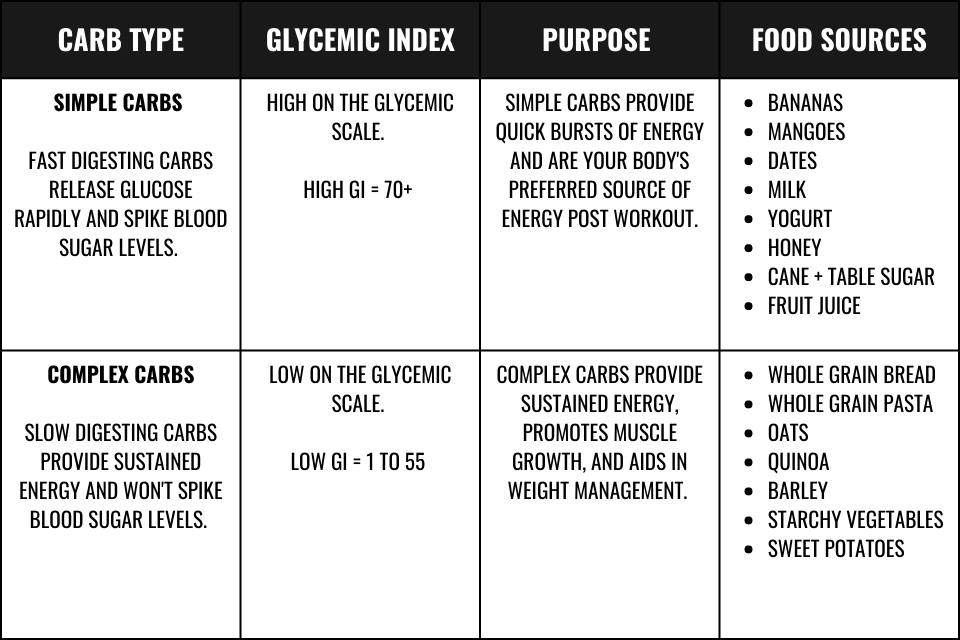Dive into the world of metabolic confusion diet plans with this comprehensive review that sheds light on its effectiveness, benefits, and potential drawbacks. Get ready to explore the science behind this popular approach to weight loss and discover how it may revolutionize your health journey.
Overview of Metabolic Confusion Diet Plan
Metabolic confusion is a concept where you vary your calorie intake, macronutrient ratios, and meal timing to prevent your body from adapting to a set routine, thus boosting your metabolism and promoting weight loss.
How Metabolic Confusion Diet Plan Works
The metabolic confusion diet plan works by keeping your body guessing and preventing it from getting used to a specific pattern. By constantly changing your calorie intake, macronutrient ratios, and meal timing, you can keep your metabolism elevated, leading to increased fat burning.
- Rotate between high and low-calorie days to prevent your body from adjusting to a specific intake level.
- Vary the proportions of protein, carbohydrates, and fats in your meals to keep your metabolism active.
- Include intermittent fasting or alternating fasting days to create metabolic confusion and promote weight loss.
Examples of Foods in Metabolic Confusion Diet Plan
In a metabolic confusion diet plan, you may include foods like lean proteins (chicken, fish, tofu), complex carbohydrates (quinoa, sweet potatoes, whole grains), healthy fats (avocado, nuts, olive oil), and plenty of fruits and vegetables. Meal structures could involve having high-calorie days with more carbohydrates and low-calorie days with higher protein intake to keep your body guessing and your metabolism working efficiently.
Benefits of Metabolic Confusion Diet Plan
Following a metabolic confusion diet plan can offer several potential benefits for individuals looking to improve their overall health and wellness.
Impact on Metabolism and Energy Levels
A metabolic confusion diet plan involves cycling between different types of macronutrients and calorie levels to keep the body guessing and prevent a metabolic slowdown. This can help boost metabolism and prevent weight loss plateaus, leading to increased energy levels and improved fat burning.
Scientific Research and Studies
- One study published in the International Journal of Obesity found that cycling between high and low-calorie days can lead to greater weight loss and fat loss compared to a traditional calorie-restricted diet.
- Another study published in the Journal of Nutrition showed that varying macronutrient ratios can have a positive impact on metabolic rate and fat oxidation, leading to improved body composition.
Drawbacks and Risks

Following the metabolic confusion diet plan, like any other diet, comes with its own set of drawbacks and risks that individuals should be aware of before embarking on this journey.
Potential Side Effects
- Initial Hunger: With the constant changes in calorie intake and food choices, some individuals may experience increased hunger, especially during the initial phases of the diet.
- Nutrient Deficiencies: Rapid changes in food consumption can lead to potential nutrient deficiencies if the diet is not carefully planned and monitored.
- Metabolic Adaptation: The body may adapt to the calorie cycling pattern over time, potentially slowing down the metabolism and hindering weight loss progress.
Challenges in Sustainability
- Complexity: The constant need to track and adjust calorie intake can be overwhelming for some individuals, making it challenging to sustain this diet in the long term.
- Social Limitations: The strict nature of the metabolic confusion diet plan may pose challenges in social settings or when dining out, leading to feelings of isolation or restriction.
- Plateau Effect: As the body adapts to the diet plan, weight loss may plateau, requiring further adjustments to continue seeing results.
Success Stories and Testimonials

Many individuals have shared their inspiring success stories and testimonials after following the metabolic confusion diet plan. Let's explore how this diet plan has positively impacted their lives and health.
Transformation in Health and Weight
- One individual reported losing 20 pounds in just a few months of following the metabolic confusion diet plan. They mentioned feeling more energized and confident in their body.
- Another person shared how the diet plan helped them lower their cholesterol levels significantly, leading to improved overall health and well-being.
Improved Relationship with Food
- A common theme among those who found success with the metabolic confusion diet plan is a shift in their relationship with food. Many individuals reported feeling more in control of their eating habits and cravings.
- Some testimonials highlighted how the diet plan helped them break free from emotional eating patterns and develop a healthier mindset towards food.
Boost in Confidence and Self-Esteem
- Several success stories emphasized the positive impact of the metabolic confusion diet plan on their confidence and self-esteem. Losing weight and feeling healthier contributed to a significant boost in their overall well-being.
- Individuals shared how achieving their weight management goals through this diet plan made them feel more confident in their own skin and motivated to maintain a healthy lifestyle.
Final Thoughts

In conclusion, the metabolic confusion diet plan offers a unique perspective on achieving weight loss and improving overall health. By understanding its principles and nuances, individuals can make informed decisions about incorporating this approach into their lifestyle. Embrace the possibilities and embark on a transformative journey towards a healthier you.
Key Questions Answered
What sets the metabolic confusion diet plan apart from other diet plans?
The metabolic confusion diet plan employs varying calorie intake and macronutrient distribution to prevent metabolic adaptation, potentially enhancing weight loss results.
Are there any risks associated with following the metabolic confusion diet plan?
Some individuals may experience initial challenges adapting to the changing meal structures and calorie levels, which could impact adherence to the plan.
Is there scientific evidence supporting the effectiveness of the metabolic confusion diet plan?
While more research is needed, some studies suggest that cycling calorie intake and macronutrient ratios may have metabolic benefits for weight management.